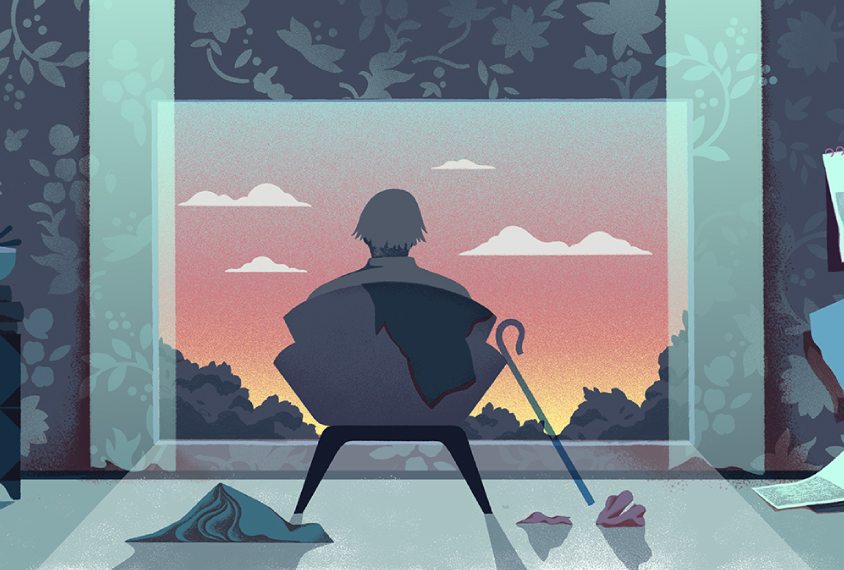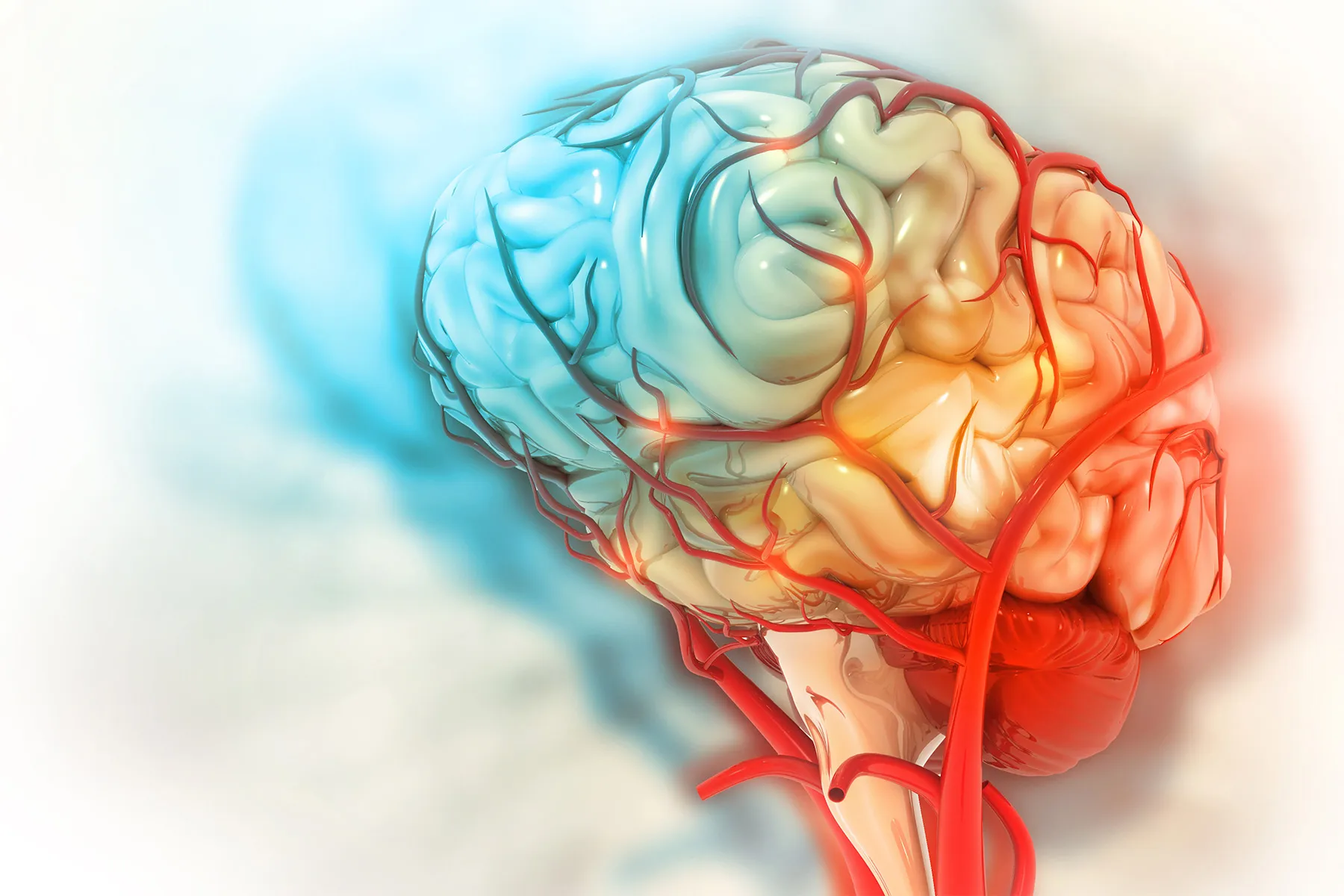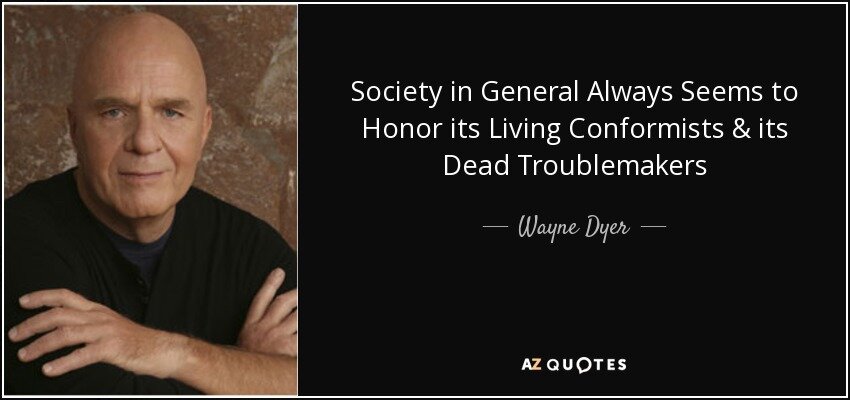"Great spirits have always encountered violent opposition from mediocre minds." — Albert Einstein
- Articles
- Forum Archive
- Psychology, Psychiatry, Psychotherapy, and Health
- Psychology, Psychiatry, and Mental Health
- Positive Psychology
You are using an out of date browser. It may not display this or other websites correctly.
You should upgrade or use an alternative browser.
You should upgrade or use an alternative browser.
- Thread starter Daniel E.
- Start date
-
- Tags
- neurodiversity
More threads by Daniel E.

 academic.oup.com
academic.oup.com
Higher interpersonal similarity of autistic traits was associated with higher measures of closeness, acceptance and help. These results, therefore, lend support to the idea of an interactive turn in the study of social abilities across the autism spectrum.

 www.spectrumnews.org
www.spectrumnews.org
Perhaps the most insidious, and under-appreciated, culprit is a world that often feels unfriendly to those who are different. Many autistic adults engage in camouflaging — trying to act like a neurotypical person by hiding autism traits. This masking can be stressful — and stress can raise the risk of heart disease, stroke and suicidal thoughts and behaviors. Without adequate support, some autistic adults may also experience ‘burnout,’ a phenomenon characterized by chronic exhaustion, loss of skills and other consequences.
“Looking at health in older adults with autism can tell us something about the result of a lifetime of the lived experience of being autistic, of the discrimination that comes with being autistic,” says Lauren Bishop, assistant professor of social work at the University of Wisconsin-Madison.

 www.sciencedirect.com
www.sciencedirect.com
Likely due in part to a female advantage at declarative memory (perhaps thanks to higher estrogen levels), females may rely more on this system, while males correspondingly rely more on procedural memory, for tasks that can be performed by either system.

"Studies suggest that girls and women are better than boys and men, on average, in their use of declarative memory. Therefore females are likely to compensate more successfully than males, even to the point of compensating themselves out of diagnosis more often than males."
"Your unique value is your weirdness."

 www.bbvaopenmind.com
www.bbvaopenmind.com
This leads to a theory that synesthetes do not experience extraordinary associations, but simply become aware of them, while the rest of the population ignores them. In other words, any brain is able to connect the stimuli captured by different senses, but in 24 out of 25 individuals this happens at an unconscious level. The study of synesthetes thus sheds light on the brain mechanisms that underlie the conscious experience of all human beings.

 www.webmd.com
www.webmd.com
We need more research, but experts think the genes for these developmental "disorders" stick around because they come with evolutionary advantages. For example, behaviors like hyperactivity and impulsivity might have helped our ancestors find food or move way from danger. And strong nonsocial skills, like the kind some people with autism have, were good for our prehistoric ancestors who lived out in nature.
Medical experts and people with neurodiverse features don’t always agree on what neurodiversity means. Some think conditions like autism are always disabling. And people vary greatly in how they want to self-identify. Some prefer identity-first language while others don’t.
"There are workers with autism and there are autistic workers," Santuzzi says.
And while there’s a distinction between neurodiversity and disability, right now, "some people want to hold on to the identity of disability to acknowledge that the workplace and school settings haven’t adjusted yet," Santuzzi says. "And they’re still at a disadvantage."

 www.them.us
www.them.us
My trans joy is often less about “becoming,” and more about moments where I am aware that my very existence undermines a system that is toxic to the bodies of everyone around me.
“The biggest joy is the connection with other trans folks. When I made the leap to come out, it did not go very well. But the people who were there to catch me were my trans fam. And that’s pretty joyful.” — A
“Alone. Yes, that's the key word, the most awful word in the English tongue. Murder doesn't hold a candle to it and hell is only a poor synonym.”
― Stephen King
― Stephen King
"The hallmark of a decision in line with one’s character is ease and contentment, and an ample, even provision of natural energy."
--Anne Truitt, Turn: The Journal of an Artist
--Anne Truitt, Turn: The Journal of an Artist
"Defects, disorders, diseases can play a paradoxical role, by bringing out latent powers, developments, evolutions, forms of life, that might never be seen, or even be imaginable, in their absence."
—Oliver Sacks, neurologist
—Oliver Sacks, neurologist
Last edited:

Interpersonal similarity of autistic traits predicts friendship quality
Abstract. Autistic traits are known to be associated with social interaction difficulties. Yet, somewhat paradoxically, relevant research has been typicall
Higher interpersonal similarity of autistic traits was associated with higher measures of closeness, acceptance and help. These results, therefore, lend support to the idea of an interactive turn in the study of social abilities across the autism spectrum.
"Resolve to be thyself; and know, that he who finds himself, loses his misery."
~ Matthew Arnold
~ Matthew Arnold

Growing old with autism
For many autistic adults, the golden years are tarnished by poor health, poverty and, in some cases, homelessness. Their plight reveals huge gaps in care.
Perhaps the most insidious, and under-appreciated, culprit is a world that often feels unfriendly to those who are different. Many autistic adults engage in camouflaging — trying to act like a neurotypical person by hiding autism traits. This masking can be stressful — and stress can raise the risk of heart disease, stroke and suicidal thoughts and behaviors. Without adequate support, some autistic adults may also experience ‘burnout,’ a phenomenon characterized by chronic exhaustion, loss of skills and other consequences.
“Looking at health in older adults with autism can tell us something about the result of a lifetime of the lived experience of being autistic, of the discrimination that comes with being autistic,” says Lauren Bishop, assistant professor of social work at the University of Wisconsin-Madison.
Last edited:
"You are not a rock or an island. You are not a fortress. You deserve friendship, laughter, and loving. You need community and community needs you."
~ David C. Strubler, Ph.D.
~ David C. Strubler, Ph.D.
“Think how it feels that we, of all people, who have such powerfully single-minded vocations, and hunger more than most to fulfil our vocations, must everywhere seem to be prevented by those eagle-eyed gatekeepers, the networkers, the social police who will prevent us from accessing the resources we need because we fail an irrelevant eye-contact test, or the right-kind-of-smile-on-the-way-to-the-water-cooler test.”
~ Judy Singer, Foreword to Jean Kearns Miller, Women From Another Planet?
~ Judy Singer, Foreword to Jean Kearns Miller, Women From Another Planet?
Last edited:
"Quit apologizing for who you are, and start celebrating it."
~ Alan Cohen
~ Alan Cohen
“I have never listened to anyone who criticized my taste in space travel, sideshows or gorillas. When this occurs, I pack up my dinosaurs and leave the room.”
― Ray Bradbury, Zen in the Art of Writing
― Ray Bradbury, Zen in the Art of Writing
"I can’t understand why people are frightened of new ideas. I’m frightened of the old ones."
~ John Cage
~ John Cage

The Declarative/Procedural Model: A Neurobiological Model of Language Learning, Knowledge, and Use
Most research on the neurobiology of language focuses on language alone. However, new biological functions commonly make use of previously existing me…
 www.sciencedirect.com
www.sciencedirect.com
Likely due in part to a female advantage at declarative memory (perhaps thanks to higher estrogen levels), females may rely more on this system, while males correspondingly rely more on procedural memory, for tasks that can be performed by either system.
A brain system that appears to compensate for autism, OCD, and dyslexia
Individuals with five neurodevelopmental disorders -- autism spectrum disorder, obsessive-compulsive disorder, Tourette syndrome, dyslexia, and Specific Language Impairment -- appear to compensate for dysfunction by relying on a single powerful and nimble system in the brain known as declarative...
www.sciencedaily.com
"Studies suggest that girls and women are better than boys and men, on average, in their use of declarative memory. Therefore females are likely to compensate more successfully than males, even to the point of compensating themselves out of diagnosis more often than males."
Last edited:
"Your unique value is your weirdness."

BBVA | The digital bank of the 21st century
The latest banks and financial services company and industry news with expert analysis from the BBVA, Banco Bilbao Vizcaya Argentaria.
This leads to a theory that synesthetes do not experience extraordinary associations, but simply become aware of them, while the rest of the population ignores them. In other words, any brain is able to connect the stimuli captured by different senses, but in 24 out of 25 individuals this happens at an unconscious level. The study of synesthetes thus sheds light on the brain mechanisms that underlie the conscious experience of all human beings.
"Homelessness is not an outcome of autism, but of the disabling barriers autistic adults face throughout their lives."
~ Beth Stone
~ Beth Stone
"The government works much harder to help rich people make money off their homes than to help poor people find shelter."
~ Matthew Stewart, The 9.9 Percent
~ Matthew Stewart, The 9.9 Percent

Neurodiversity: What Is It?
There’s a growing push to focus on our brain differences, not deficits. This wider view of "normal" is a big part of something called neurodiversity.
We need more research, but experts think the genes for these developmental "disorders" stick around because they come with evolutionary advantages. For example, behaviors like hyperactivity and impulsivity might have helped our ancestors find food or move way from danger. And strong nonsocial skills, like the kind some people with autism have, were good for our prehistoric ancestors who lived out in nature.
Medical experts and people with neurodiverse features don’t always agree on what neurodiversity means. Some think conditions like autism are always disabling. And people vary greatly in how they want to self-identify. Some prefer identity-first language while others don’t.
"There are workers with autism and there are autistic workers," Santuzzi says.
And while there’s a distinction between neurodiversity and disability, right now, "some people want to hold on to the identity of disability to acknowledge that the workplace and school settings haven’t adjusted yet," Santuzzi says. "And they’re still at a disadvantage."

Finding Joy and Power in Being a Trans Person
"Your life may be one of resistance, but it will also will be one of sweetness, and beauty, and love."
My trans joy is often less about “becoming,” and more about moments where I am aware that my very existence undermines a system that is toxic to the bodies of everyone around me.
“The biggest joy is the connection with other trans folks. When I made the leap to come out, it did not go very well. But the people who were there to catch me were my trans fam. And that’s pretty joyful.” — A
Replying is not possible. This forum is only available as an archive.
Similar threads
- Replies
- 2
- Views
- 2K
- Replies
- 5
- Views
- 3K
- Replies
- 15
- Views
- 4K

